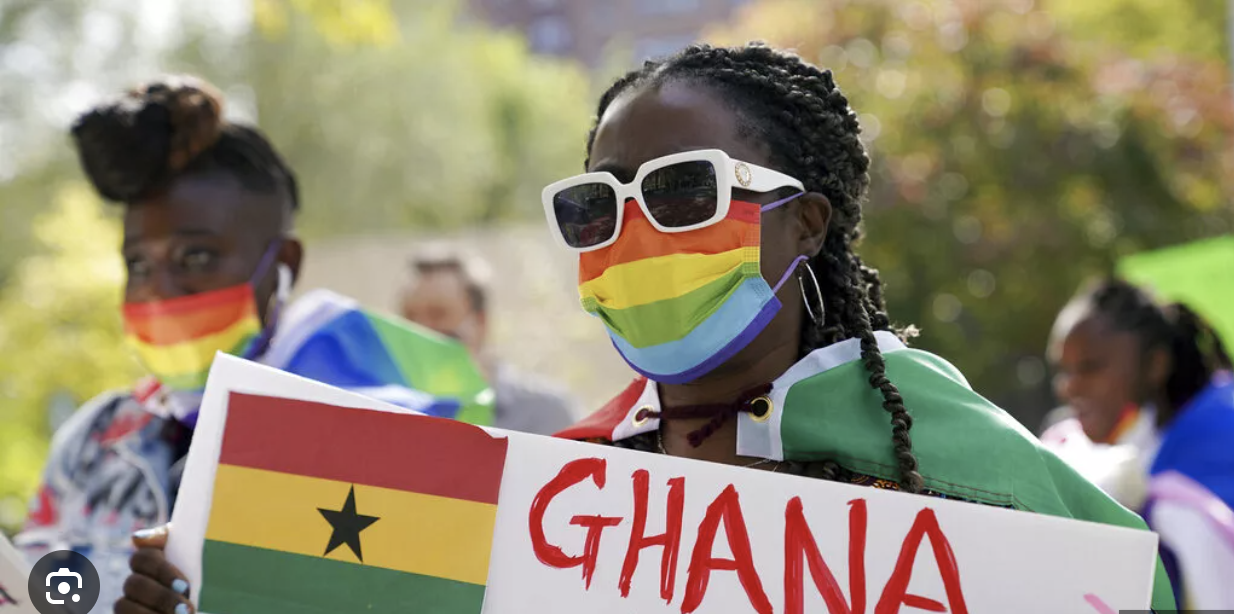Queer Travelers in Ghana Share What You Need to Know
By Charles Aboagye
Like in most West African countries, being gay or queer in Ghana is not socially accepted and is even illegal in certain cases. There is even an ongoing parliamentary discussion to further criminalize and prosecute people who identify as anything apart from cisgender and heterosexual. Due to these harsh realities, there isn’t a public queer scene in Ghana. However, this situation should not stop queer people from experiencing Ghana. Five queer people living in Ghana shared their experiences and some tips on staying safe. For the sake of their safety and anonymity, their names will be changed.
Photo Source: Africa News
“I know the first thing most gay men do when they travel to a new place is to get a scope of the surroundings [sic]. You log on to Grindr and start seeing how bustling the scene is. However, when you’re new in Ghana, stay off the yellow app till you completely understand what you’re getting yourself into. And when you do, do not use or upload any details that point straight to you like your name, a picture of your face, or an identifiable feature like your tattoo, piercing, or birthmark. Stay anonymous and do not meet locals. If you decide to, try and set the meeting in a public space you can control. You can’t be too careful, honestly.”
- Darrell, Gay (USA)
“If you identify as non-binary or any other gender and express your gender through your clothing, you might want to be very subtle when you are in Ghana. All forms of androgynous clothing, drag, or cross-dressing might be met with uncomfortable stares and questions. You can avoid this if you opt for clothes that subtly resemble what you’re used to. Also, explore other forms of fashion accessories like jewelry and hairstyles which mostly blend you in. You have to understand that societies differ and it will take some time for Ghanaians to get to that level of acceptance.”
- Leah/Lewis, Non-binary
“I came to Ghana for a three-month study which eventually got extended to six months so I had to rent a nice small place for the duration of my stay. Ghanaians are very close-knit people and like to check up on people, even acquaintances. On several occasions, I had my landlady check up on me and try to engage me in a conversation. I won’t lie, some of the questions made me uncomfortable. As someone who identifies as asexual and aromantic, you can imagine how weird it was when she asks if I have found a nice Ghanaian man and if I had a boyfriend. She asked when I planned on getting married and how many children I wanted. It wasn’t until later, I realized that she meant no harm and that was her way of making me feel welcomed. Just understand that each society determines what they consider “boundaries” and be prepared to have some weird conversations. Ghanaians mean well.”
- Georgette, Asexual/Aromantic (Canada)
“Oh, meeting up with someone in Ghana is simple! Always choose referrals and never do night meet-ups. If you want to meet someone, get a friend to refer and vouch for the person. Go the extra step and send their picture or their social media profiles to your circle of friends. Share a live location and update your friends when you finally meet them up. One thing that has always saved me is my instincts. Whenever I have that negative gut feeling, I either stop talking to the person online or decline to meet up.”
- Kendall, Lesbian ( USA)
“One thing you want to do as a queer person when you travel Ghana is to build a community for yourself. I always say it helps to have friends in both high and low places. Surround yourself with queer friends, allies, and trusted locals. These people become some sort of support system and help when you need it…and you’re going to need it. Don’t be a loner.”
- Henry, Bisexual


